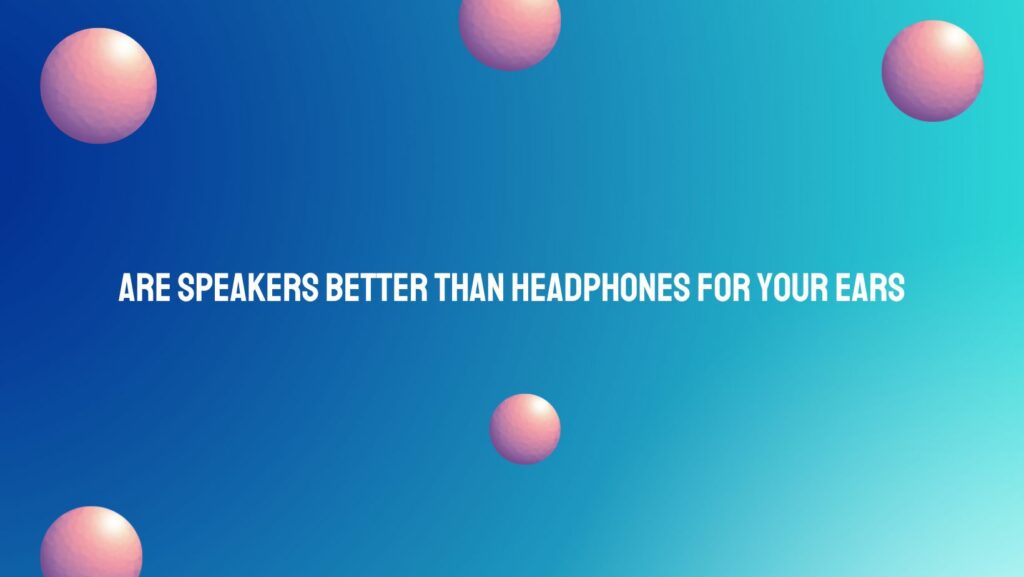The debate over whether speakers or headphones are better for your ears is a common concern among audio enthusiasts and health-conscious individuals. Both options offer unique listening experiences and considerations regarding ear health and comfort. In this article, we delve into the factors influencing the impact of speakers and headphones on your ears to provide insights into their respective benefits and potential drawbacks.
Understanding the Dynamics: Speakers and headphones present distinct listening environments and physical interactions with the ears. Speakers emit sound waves into the surrounding space, allowing for natural dispersion and a shared auditory experience. On the other hand, headphones deliver sound directly into the ear canal, providing isolation and personalized immersion. Evaluating the impact on ear health requires considering several key factors.
Impact of Headphones on Ear Health:
- Ear Canal Pressure: In-ear headphones, especially those with tight-fitting ear tips, can exert pressure on the ear canal, potentially leading to discomfort and ear fatigue over extended listening sessions. It’s essential to choose earphones with ergonomic designs and soft, comfortable ear tips to minimize pressure and ensure proper ventilation.
- Noise-Induced Hearing Loss: Listening to music at high volumes through headphones can increase the risk of noise-induced hearing loss (NIHL) over time. Prolonged exposure to loud sounds, especially at levels exceeding 85 decibels, can damage the delicate hair cells in the inner ear responsible for hearing. Practicing responsible listening habits, such as using volume-limiting features and taking regular breaks, can help mitigate this risk.
- Earwax Accumulation: Wearing headphones for extended periods can contribute to the accumulation of earwax in the ear canal, potentially leading to blockages and discomfort. Regular cleaning of headphones and practicing good ear hygiene can help prevent excessive earwax buildup and maintain ear health.
Advantages of Speakers for Ear Health:
- Natural Listening Environment: Speakers create a more natural listening environment by emitting sound waves into the surrounding space, allowing for better air circulation and reduced pressure on the ears. This open-air listening experience can be more comfortable for individuals prone to ear sensitivity or discomfort with headphones.
- Shared Listening Experience: Listening to music through speakers encourages shared auditory experiences among multiple listeners, fostering social interaction and connection. Unlike headphones, which isolate individuals from their surroundings, speakers promote communal enjoyment of music, movies, and other audio content.
- Reduced Risk of Ear Fatigue: Extended use of headphones, especially in-ear or over-ear models, can contribute to ear fatigue and discomfort due to prolonged pressure on the ears. Speakers offer a more relaxed listening experience, allowing listeners to enjoy audio content without the physical constraints associated with headphones.
Conclusion: In conclusion, the impact of speakers and headphones on ear health depends on various factors, including listening habits, comfort preferences, and environmental considerations. While headphones offer personalized immersion and isolation, speakers provide a more natural listening experience and promote shared auditory experiences. Both options have their advantages and potential drawbacks in terms of ear health, requiring users to adopt responsible listening practices and prioritize comfort and safety. Ultimately, choosing the right audio solution involves balancing personal preferences, lifestyle factors, and considerations for ear health to ensure a fulfilling and enjoyable listening experience for years to come.


